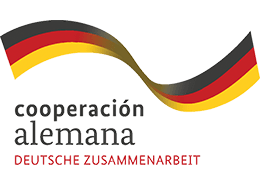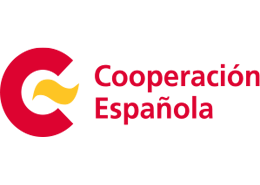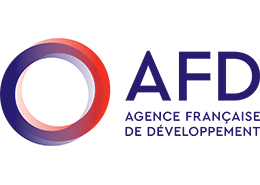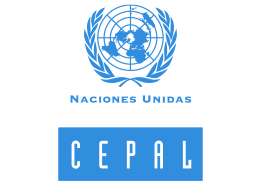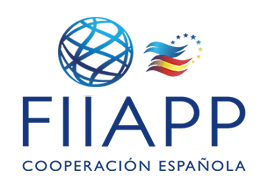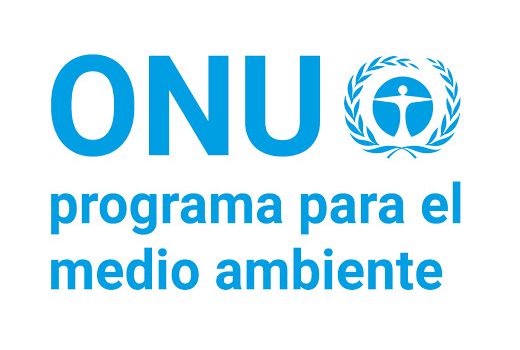ABOUT FBE
The thematic sector of Forests, Biodiversity and Ecosystems (FBE) is implemented jointly by Expertise France (EF) and the Deutsche Gesellschaft für Internationale Zusammenarbeit (GIZ). EF is responsible for the financing and monitoring of the 9 innovative projects, and GIZ is responsible for technical assistance (TA) and strategic capacity building.
The implementation of these projects is also supported by the institutional capacity building of the executing organizations, which contributes to the achievement of the climate policies of the countries involved.
Strategic lines of technical assistance
The technical assistance (TA) of the FBE thematic sector has the function of advising project teams and beneficiaries in the implementation of actions and in the development of professional and institutional capacities, generating exchange, analysis, and capitalisation of experiences of common interest between projects and their scaling up to sub-national, national and international levels. This is achieved through the following five strategic lines:
1. Improved governance
2. Access to climate finance
3. Inclusion of indigenous peoples
4. Knowledge management, communication and visibility
5. Studies and specific assistance
ACTIONS AND PROGRESS BY STRATEGIC LINE
- 1. Improved governance
- 2. Access to climate finance
- 3. Inclusion of indigenous peoples
- 4. Knowledge management, communication and visibility
- 5. Studies and specific assistance
During 2021, the study on "Natural Resource Governance: Emerging lessons on its catalytic role for the effective implementation of NDCs in Latin America" [available here] was published and six emblematic case studies were developed from the experiences of BBE projects on natural resource governance and its relevance for the effective implementation of NDCs.
Through the webinar “Emerging lessons: Governance of natural resources on a local scale to strengthen the implementation of NDCs in Latin-America”, in which more than 300 people participated, the experiences and lessons learned from the BBE projects on governance of natural resources were shared. The webinar took place on the 17th of December 2020, and the video is available here, the presentation here.
In 2020/21, in cooperation with the International Institute for Environment and Development (IIED), the methodology of “Self-Assessment of Governance and Equity at Site Level for Protected and Conserved Areas” (SAGE) was adapted for the Latin America region. Two projects of the FBE sector were actively involved in the process (translation, analysis & adaptation, training and use of the SAGE methodology).
During the second half of 2020 and first semester of 2021, in cooperation with the INCAE Business School, a training course on the “Formulation of financeable projects in the FBE thematic sector for the implementation of NDCs in Latin America” was held, in which more than 30 representatives of FBE projects throughout the region participated.
As of December 2020, 10 project proposals are in the process of being developed and the last training module will continue in 2021. More information can be found here.
In 2019, sessions on integrating indigenous knowledge into FBE projects were held, in which 51 project representatives participated. Additionally, a study on the “Contribution of indigenous peoples to climate action in Latin America” and two flagship case studies, were conducted.
During 2019, FBE projects organized and/or participated in 6 side events in the framework of international events, where they had the opportunity to share their objectives, progress and lessons learned. The side events took place in the framework of the III Congress of Protected Areas of Latin America and the Caribbean (in Lima, Peru); the Latin American and Caribbean Climate Week (in Salvador Bahía, Brazil); and in the COP25 (in Madrid, Spain).
Due to isolation during the pandemic, in 2020 the FBE projects organised 22 virtual events to present their progress, early results and lessons learned. Videos of the virtual events can be found here.
In May 2020, a webinar on the opportunities and challenges of Nature based Solutions was held, with the attendance of over 400 participants.
In addition, 18 project representatives were trained in three sessions on the importance of knowledge management; and 4 trainings were conducted on how to improve and enhance project communication and outreach (33 participants representing the FBE projects, mainly communicators).
Since 2019, a series of technical studies have been carried out with the support of external consultants, the FBE projects and TA. They included:
- a technical study on the Economic Valuation of Ecosystem Services for Climate Action,
- a technical study on Nature-based Solutions for Climate Action,
- a regional technical study and 6 case studies on natural resource governance and its catalytic role in the context of NDCs; available in English and Spanish.
- a technical study on the “Contribution of indigenous peoples to climate action in Latin America”.
KNOWLEDGE GENERATED THROUGH TECHNICAL ASSISTANCE
The role of technical assistance (TA) within the FBE sector is to support the development of professional and institutional capacities of project implementers and beneficiaries, related to forest, biodiversity and ecosystem management, as well as the scaling-up of impacts, based on good practices and lessons learned.
Between 2019 and 2020 the following trainings were carried out:
- 34 project representatives trained in " Formulation of financeable projects in the FBE thematic sector for the implementation of NDCs in Latin America ",
- 27 project representatives trained in “Valuation of ecosystem services”,
- 24 project representatives trained in “Ecosystem based Adaptation (EbA)”,
- 18 project representatives trained on “Nationally Determined Contributions under the Paris Agreement”,
- 18 project representatives trained on “Knowledge management and systematisation of experiences”,
- 16 project representatives trained on “Gender Mainstreaming”,
- 8 project representatives trained on “Transformation of environmental conflicts”,
- 38 project representatives trained on “Communication management and visibility of FBE projects”.


